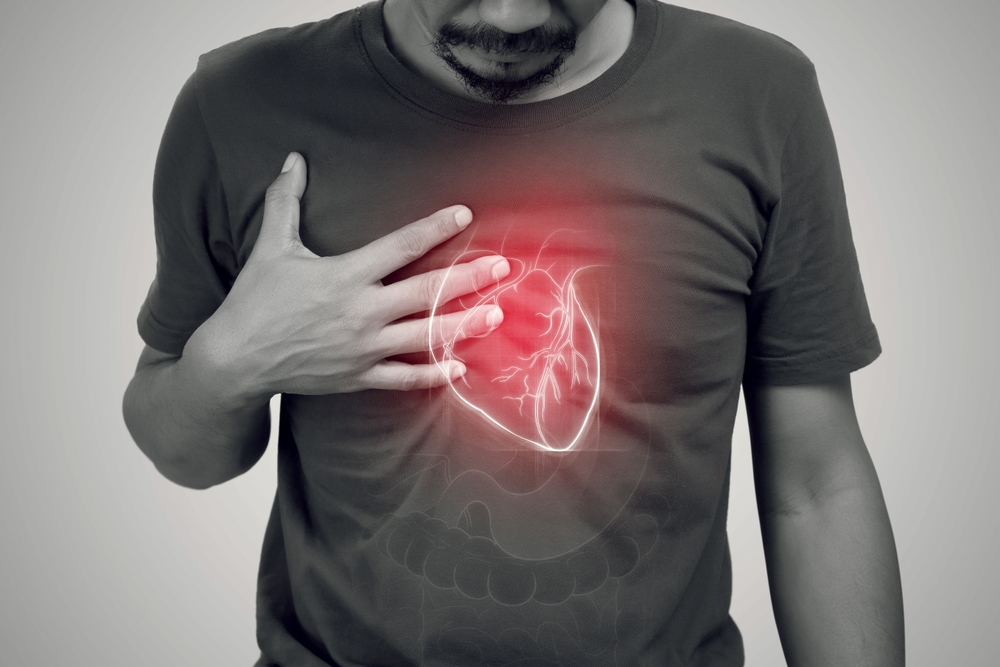Heart Failure: Symptoms, Causes and Treatment

Heart failure is a long-term yet quite dangerous situation where your heart starts to malfunction. While there is a specific requirement of blood for your body, in a condition of heart failure, enough blood is not pumped to meet the body's needs. Depending upon the intensity of failure, light, and severe conditions impact the body. Moreover, the intensity of failure also determines the type of heart failure treatment, which can range from doing simple exercises to even a complete surgery.
Although it might seem by the term that the heart has completely stopped working, in reality, it does not pump enough blood. While this is usually a long-term health condition, it can severely affect every organ if not treated in time. Usually, the most common type of heart failure is a left-sided failure, where the left ventricle does not function properly and becomes stiff, thus restricting blood flow to the body. On the other hand, right-sided heart failure is quite rare, but it does happen.
While this is some basic information about heart failure, let us look deeper into its causes, complications, symptoms and treatment methods.
Complications of Heart Failure
There are multiple complications related to the severe condition of heart failure. Some of them are listed here.
- Sudden cardiac arrests or heart attacks.
- Problems and blockages in the valves of the heart.
- Irregular heartbeat and loss of breath.
- Lung issues where fluids are filled.
- Kidney issues.
- Liver damage.
- Pulmonary hypertension.
- Loss of appetite leads to malnutrition.
Symptoms of Heart Failure
There are various heart failure symptoms that can be easily noticed. While some may be mild, some might cause immense irritation and a need for necessary medical attention. Moreover, symptoms related to heart failure come and go, which means that once you stop feeling the symptoms, it does not mean the problem is gone. Once you feel any kind of the symptoms listed below, immediately consult a specialist doctor for proper treatment.
- Loss or shortness of breath.
- Excessive and unmeasured weight gain.
- Extreme tiredness or fatigue and weakness in limbs after being minimally active.
- Abnormal swelling in ankles, various areas of legs and abdomen.
- Urge to urinate constantly, even while sleeping.
- Dry and irritated cough throughout the day.
- Heartbeats show abnormality by increasing or decreasing depending on the type of heart failure. This condition is also known as heart palpitations.
- A full or bloated stomach showing signs of loss of appetite and nausea (stomach upset).
Causes of Heart Failure
The likelihood of heart failure increases as you grow old. However, the risk levels are still the same irrespective of heart failure. In light of that, here we discuss some common causes of heart failure, one of the main reasons for malfunctioning heart muscles. Apart from the issues in heart muscles, here are the other causes.
- CAD, or Coronary Artery Disease, is a leading cause of heart failure.
- Multiple heart attacks or cardiac arrests.
- Certaintypes of diabetes.
- Cardiomyopathy is a condition where the heart muscles become stiff, thus restricting blood flow.
- Congenital heart diseases or heart issues since birth.
- Hypertension or high blood pressure.
- Kidney diseases.
- Obesity or high-fat levels in the heart, a condition elevated by taking high doses of cholesterol.
- Arrhythmia is a condition that leads to the abnormal beating of the heart, including atrial fibrillation.
Treatment Methods for Heart Failure
There are various heart failure treatment methods depending upon the patient's stage of failure. While medications, lifestyle changes, and exercise are some common methods, there are other methods, depending on the severity.
The goal of treating heart failure is to minimize the long-term risks, keep the condition in control and prevent the condition from taking a lethal shape. Always remember to consult your doctor and follow their prescription. Never try to take any step by yourself.
Stage A Treatment
Stage A patients are the ones who have mild issues. Here are the common treatment methods.
- Regular exercise and staying active through walking and jogging.
- Complete elimination of tobacco, drugs, and alcohol.
- Treatment for high cholesterol.
- Treatment for hypertension and high blood pressure through a low-sodium diet and medications.
- The angiotensin-converting enzyme inhibitor (ACE-I) or angiotensin II receptor blocker (ARB) is the treatment for coronary artery diseases.
Stage B Treatment
Stage B patients are the ones who have higher risks than stage A patients. Here are some common methods of treatment.
- Beta-blocker if the patient has suffered cardiac arrests and the EF is 40% or lower.
- Aldosterone antagonist if the patient has suffered a heart attack and the EF drops below 35%.
- Potential surgery or intervention for coronary artery blockage, cardiac arrest, valve disease or heart diseases from birth.
Stage C Treatment
Stage C patients can be considered as near to critical stage patients. They need optimum care. Hence here are some common treatment methods.
- Nitrate combination medications if normal medications or techniques do not work on a long-term basis.
- Medications can restrict the heart rate if an abnormal heart rate is above 70 beats per minute.
- Diuretic or water pills should be consumed during cases of emergency.
- Complete restriction and minimal consumption of sodium through diet.
- Fluid restrictions should be regulated to safeguard the lungs.
- Biventricular pacemaker or cardiac resynchronization therapy should be taken.
- Implantable cardiac defibrillator (ICD) therapy goes a long way.
- Constant check on the weight. Every gain or loss of four pounds should be notified to the doctor.
Stage D Treatment
Stage D patients are the critical ones and need constant medical attention. Here are some treatment methods.
- Heart transplant through surgery.
- Ventricular assist devices.
- Constant palliative or hospice care.
- Research therapies work well.
- Heart surgery.
Wrapping Up
Heart failure can be severe if it is not treated correctly and in time. Over time, heart failure can take a substantial step and, in some cases, can be lethal. The chances of cardiac arrest and lung failure significantly increase when a patient is diagnosed with heart failure. Hence the proper treatment is mandatory alongside regular checkups, appropriate medications, and a healthy lifestyle.






